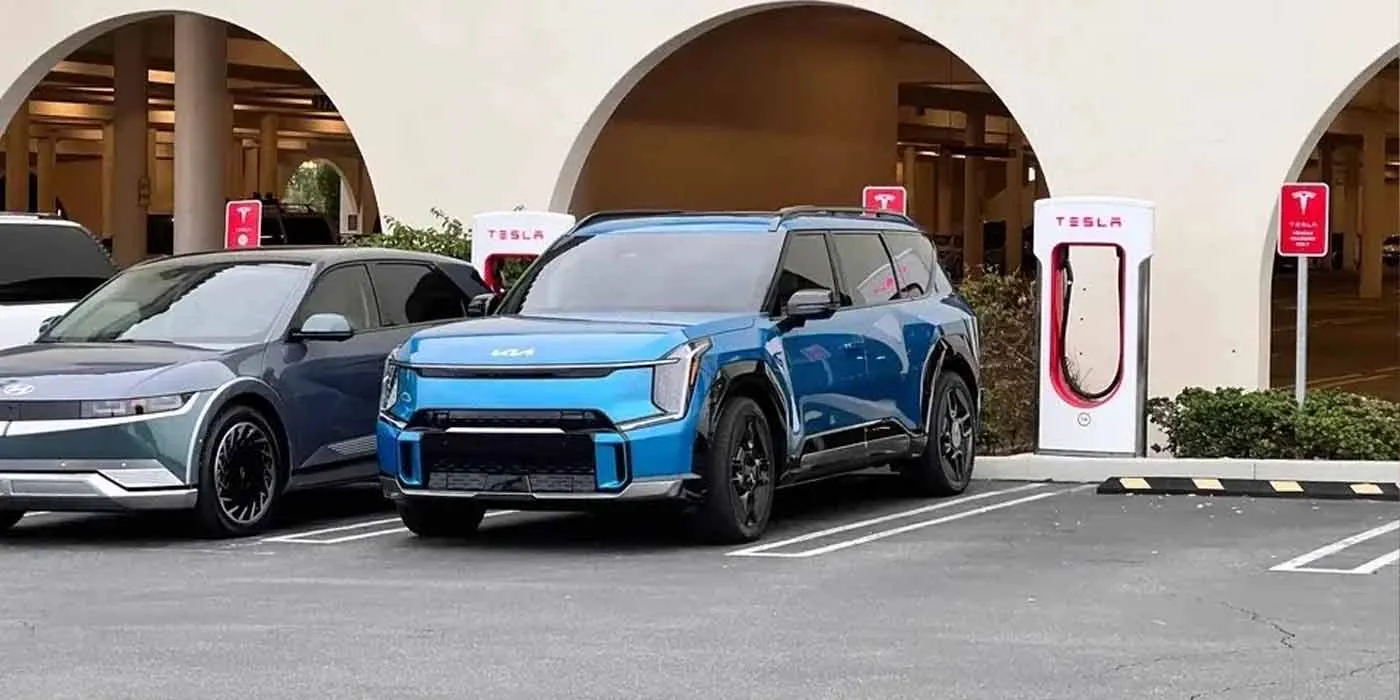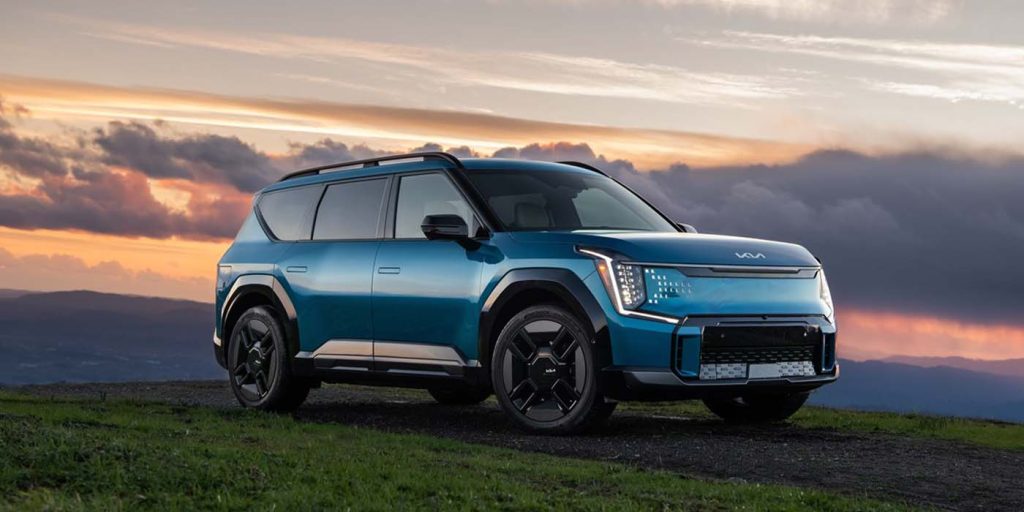
Just about a year after Hyundai Motor Group announced plans to adopt the North American Charging Standard (NACS), Kia America sits on the cusp of sending plug adapters out to its current customers while its umbrella company works to implement the universal charging inlets on new models.
The North American Standard (NACS) was initially introduced as American Automaker Tesla’s proprietary plug, giving its owners access to its Supercharger network across North America.
After Tesla renamed the inlet NACS and shared intentions to open up access to other OEMs, legacy automakers like Ford and GM quickly announced the transition. In the past year, nearly every EV automaker has followed suit and adopted the North American Charging Standard, bringing hopes of a universal charging inlet that much closer to reality—even if it will take adapters to start.
Last year, Hyundai Motor Group said it would need to examine the standard from “a customer’s perspective” before deciding whether to adopt NACS. However, the Korean automaker confirmed that a switch was in the works after we reported that an IONIQ 5 and Kia EV9 had been spotted at Tesla chargers.
Hyundai and Kia are working on implementing native NACS ports on future EV models, including the EV9, but current owners and those who purchase one of the brand’s BEVs this year will still need an adapter.
However, starting in early 2025, those EV owners can receive a NACS adapter from Kia, and some will get one for free.

Kia to rollout NACS adapters to customers in January 2025
According to an update from Kia America this morning, it plans to begin sending NACS adapters to EV6 and EV9 owners on January 15, 2025. The automaker relayed that any customer who purchases and takes delivery of a new 2024 or 2025 Kia EV9 or 2024 Kia EV6 from September 4, 2024, onward will receive a complimentary NACS adapter.
The adapter will give those Kia owners access to over 16,500 Tesla DC fast chargers in the US. Kia America’s VP of sales operations, Eric Watson, spoke about the rollout of NACS adapters:
As a leader in electrified mobility, it’s important Kia provide our EV customers the best ownership experience possible, and offering NACS adapters is a great way to open up a vast number of charge points across North America, expanding Kia-accessible DC charge points by more than 83 percent. Kia EVs are known for their range, with the EV6 RWD Light Long Range traveling an EPA-estimated 310 miles on a full charge. Now, with access to this sprawling network of DC fast chargers, our EV owners can feel even more confident in their ability to reach far-flung destinations on electricity.
According to Kia, the NACS adapters will be available in three versions: NACS to CCS1, CCS1 to NACS, and J1772 to NACS. NACS to CCS1 enables existing Kia EVs to use Tesla-branded DC fast chargers. The CCS1 coupler to NACS port enables NACS-equipped Kia EVs to charge on existing CCS DC chargers, and the J1772 to NACS adapter allows NACS-equipped Kia EVs to AC-charge on existing Level 2 chargers.
If you took delivery of a Kia EV6 or EV9 before September 4 of this year, you can still get an NACS adapter, but you’ll have to pay for it. Kia says those owners will have the opportunity to purchase an adapter from an authorized Kia dealer “at a later date.”
How much that will cost remains uncertain at this point. For comparison, GM just started rolling out its approved NACS adapter to its customers, starting at $225.
Lastly, Kia said it will roll out an OTA software update in early 2025 that will allow its EV owners to locate and pay for charging via the Kia Access app.
